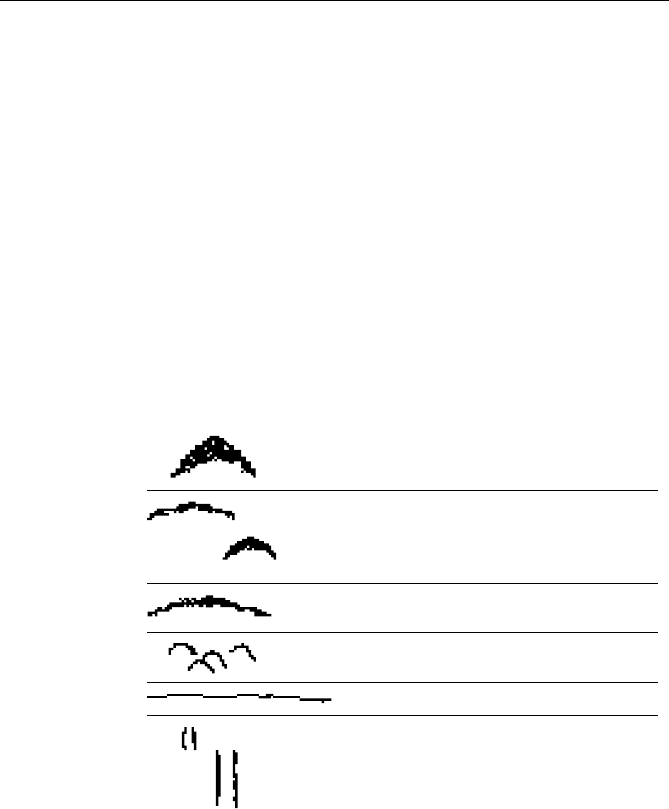
38 DS400 and DS500 Digital Fishfinders
Fish Indications
When the sounder detects a fish, it displays an arch-shaped mark. In general,
a larger arch indicates a larger fish, though this rule is not always true. Let’s
say that there are two fish of the same size: one is close to the surface, the
other is near the bottom. The fish which is close to the surface has a larger
arch because, being closer, more sound waves get returned to the fishfinder.
To display the depth of the fish, switch on the TARGET DEPTH ID from the
menu, as described on page 58.
The sound waves are actually reflected by the swim bladder near the center of
the fish, not by the body of the fish. The size of this swim bladder is different
for different kinds of fish and this can affect the size of fish arches on the
image. A fish with a large swim bladder produces a large fish arch, while a
fish with a small one produces a small arch. Several arches together show a
school of fish. Figure 3-6 illustrates some typical fish indications.
Figure 3-6: Fish Indications
Effect of Frequency and Boat Speed
The return from a fish has a different appearance depending on the frequency
used: 50kHz produces a wide beam, so a fish spotted by this frequency gives
a broad arch; the 200 kHz beam is narrower so the same fish produces a
narrower arch.
An arch-shaped image indicates a fish.
The same fish appears differently when shown by the
50 kHz or 200 kHz transducer beams.
A shallow arch is generated when the the boat is
moving slowly.
This indicates a group of small fish.
A fish moving under a stopped boat shows as a line.
When the boat is moving very fast, a fish appears as
two parallel lines.
D5017-2
50 kHz
200 kHz


















